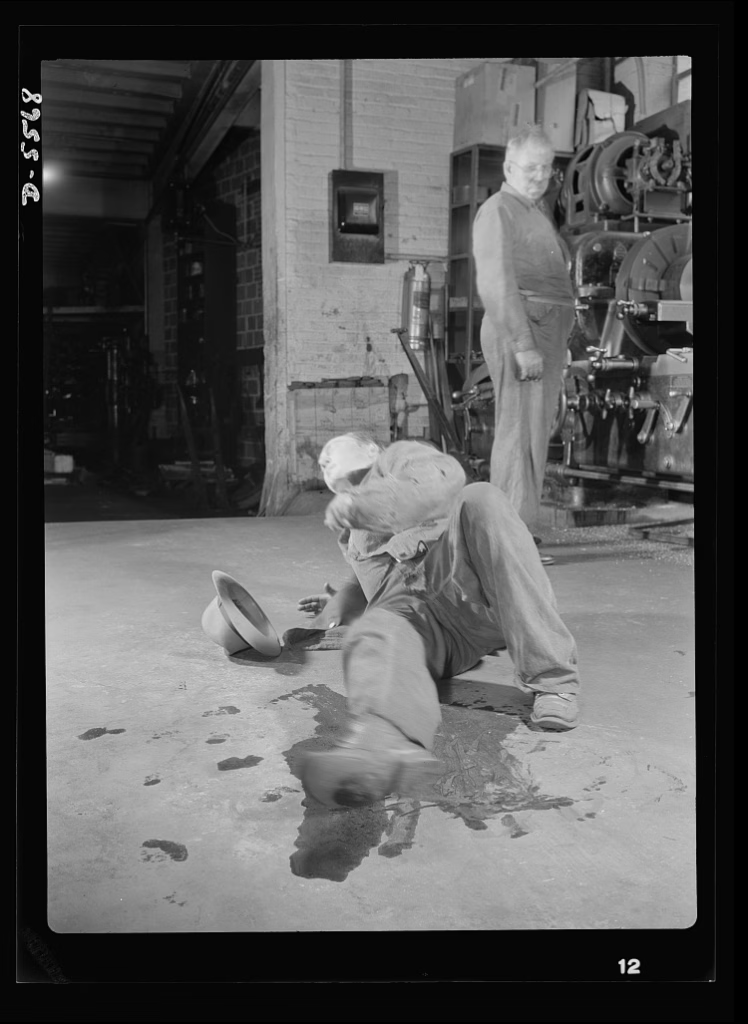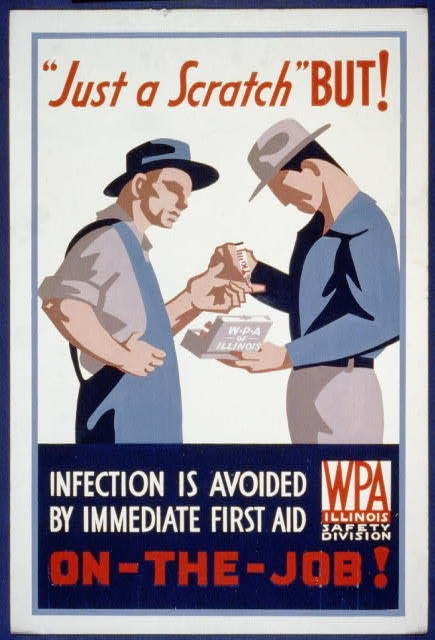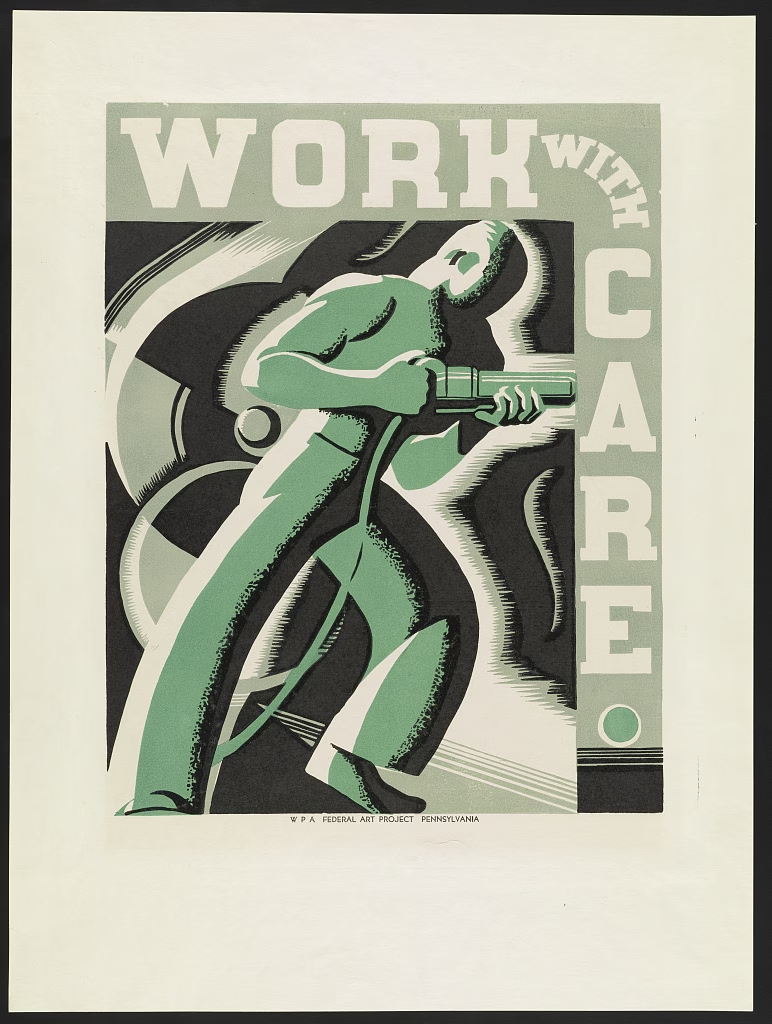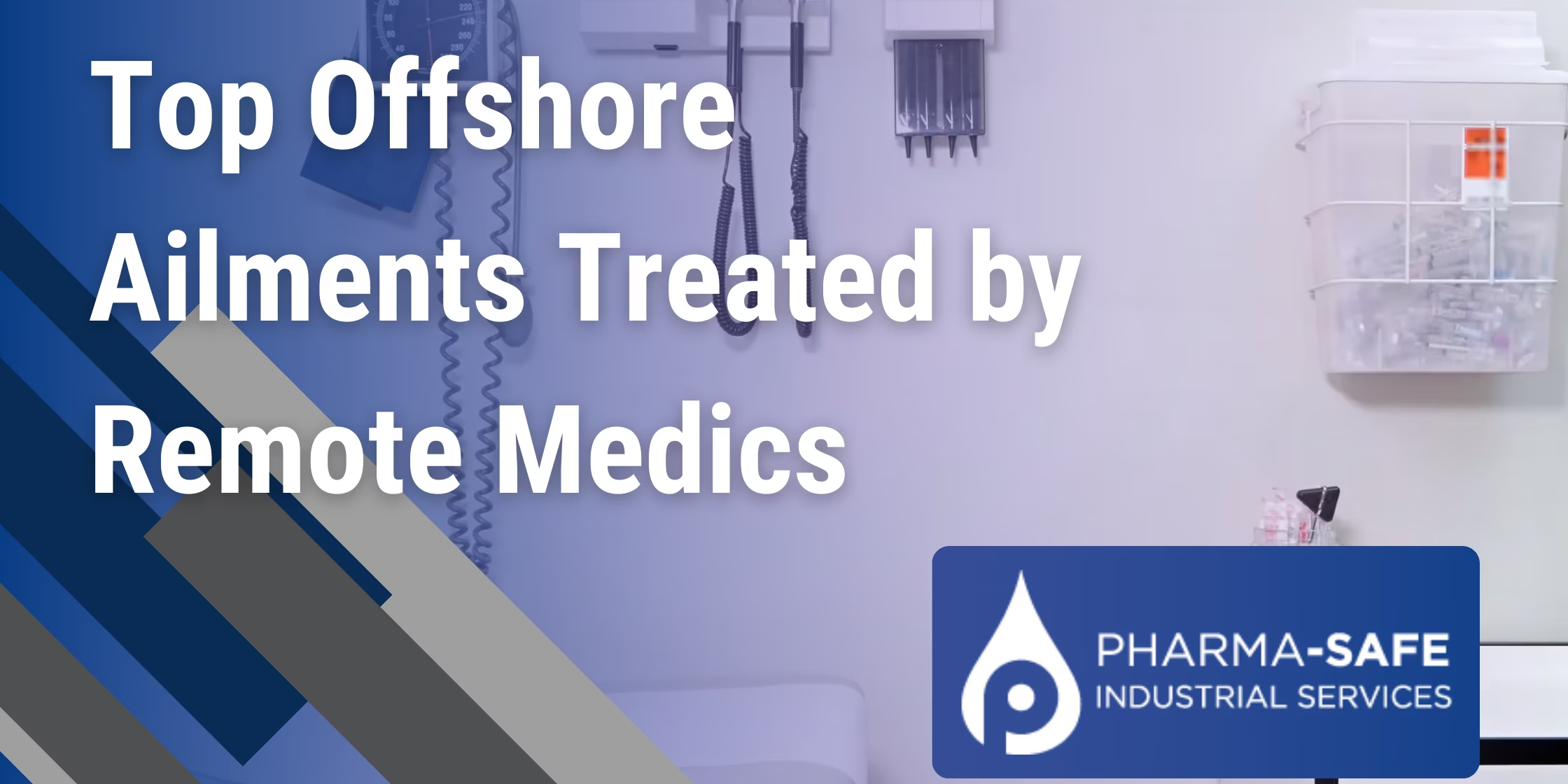Rig crews and other offshore energy industry workers often struggle to get prompt and adequate medical care compared to their onshore counterparts.
Many modern extraction and maintenance installations are hundreds of miles from a proper hospital or care center.
What healthcare solutions are there for offshore workers? A customized blend of remote medics and accessible telehealth services.
Due to the health and hazard risks of oil and gas work, workers need access to professional on-site medical care.
Sometimes, storms and other unfavorable conditions prevent evacuation. Paramedics provide life-saving and stabilizing treatment, even when patients can’t be evacuated.
On the other hand, remote medics also treat mundane ailments. Having a professional on board qualified to treat these small ailments medically translates to greater efficiency, cost savings, and most importantly, a healthy workforce.
Today, we explore the most common offshore injuries, risks, and health conditions medics expect to face.
Top 6 Most Common Offshore Ailments Remote Medics Treat
1. Overexertion and Fatigue
According to the Bureau of Labor Statistics, overexertion and bodily reaction are one of the leading causes of injuries for natural resources and mining workers.
Even though most rig operations are automated or machine-assisted, workers often face daily demanding physical labor. This creates opportunities for sprains, strains, or bone injuries. Repetitive stress injuries can cause long-term health issues and are common in offshore environments.
Remote medics may recommend that the employee rest for a few days or they may identify the signs of internal bleeding, infection, or other emerging developments that require emergency intervention.
General fatigue is also an issue offshore, and it can have serious, lasting consequences if left unaddressed. Overexertion and fatigue can be related or separate health issues.
OSHA notes the impact of shift work on oil and gas extraction workers. Fatigue isn’t about just one tired person: it’s a health and safety risk for everyone.
2. Slips, Trips, and Falls
Across all injuries, slips, trips, and falls are some of the most prevalent injuries workers face. Offshore platforms present workers with more opportunities for slips, trips, and falls.
From elevated platforms to ladders to slippery surfaces, the offshore environment is rife with opportunities for accidents if workers aren’t careful.

Learn more about preventing slips, trips, and falls here to understand how these seemingly innocuous accidents can be prevented.
3. Personal Injuries
The term “personal injury” is among the broadest in the medical field, encompassing nearly any damage to a person’s body not caused by a disease.
Workers in many occupations commonly sustain minor injuries, so even paramedics are often assigned the task of helping them dress and treat wounds to prevent infections.

Like overexertion, seemingly minor personal injuries can still have serious health implications if they aren’t properly assessed and managed.
4. Hazardous Chemical Exposure and Respiratory Distress
Oil and gas workers are exposed daily to various chemicals resulting from drilling and processing. This issue is a perfect example of the overlap between safety and health; to reduce health issues, it’s valuable to ensure proper safety precautions.
Preventative safety measures like personal protective equipment can greatly reduce chemical exposure concerns. Often, inhaled exposure leads to breathing distress.
Struggling to catch a breath can be a terrifying experience for almost anyone, and for good reason.
Respiratory distress is a common ailment in most populations. Workers exposed to any kind of noxious fumes or allergens can develop life-threatening respiratory issues at an alarming rate. All sorts of viral and bacterial infections, ranging from the common cold to tuberculosis, can also produce these symptoms.
Workers should seek attention for breathing trouble as soon as possible.

5. Mental and Emotional Health Concerns
While remote medics and emergency health personnel typically focus on threats to a person’s physical health and well-being, they also must be ready to manage mental and emotional concerns.
Workers who spend weeks or months at a time in remote locations can struggle to adapt to their workplace.
Some may also suffer from unknown or untreated existing mental health conditions that can place them and their coworkers at risk.
6. Post-Stroke and Heart Attack Care
Heart attacks and strokes can strike with virtually no warning and can affect people of all ages, not just aging adults.
Modern medical science has improved the likelihood of surviving this incident, but only with prompt intervention from professional specialists.
Remote medics stabilize patients and focus on damage management while waiting for medical evacuations.
Since most remote installations aren’t equipped to provide comprehensive care for cardiovascular episodes, remote medics focus on damage management and keeping the patient stable while they wait for evacuation.
Getting Trusted Help
Remote medic services may not be the same as bedside care in a hospital, but these services can make all the difference in life-or-death situations.
As a provider of comprehensive and specialized remote medical services for the energy industry, Pharma-Safe takes pride in our commitment to responsive, effective, and flexible solutions.
We believe that there’s no substitute for skill and training when lives are at stake. From planning to execution, we constantly assess every stage of our service process to ensure value for our clients and effective health solutions for their employees.
To learn more about the services Pharma-Safe can provide for your organization, contact us today.

